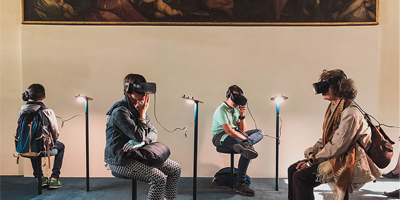
Open Justice Week 2021
Open Justice Week 2021
The Open Justice Centre is pleased to present our fourth annual e-festival of public legal education.
During this week, running 28 June - 2 July 2021, we will be presenting legal education activities which have been written and presented by students of the W360 Justice in Action module and other law students.
Digital Justice

The Digital justice project is about giving students the space to think about how to solve legal issues through the use of technology. Students are encouraged to think about new ways to design legal services and how technology can be used to support the public understanding of law. In this project students get to experiment with legal tech to encourage their curiosity and creativity.
Through the course of the 16- week extra curricula project students learn how to develop a legal chat bot using a platform developed by Josef. Students are given a brief and then spend time researching the legal issues before they start designing their solution. The Digital Justice project uses design thinking and in particular explores the importance of human centred design.
The project culminates in the Digital Justice competition where they pitched their bot to judges Sam Flynn from Josef and Adam Hunter from Clifford Chance.
The winning submission by Elizabeth Hill was a housing repair bot, Rodger the Repairs Bot, aimed at tenants to get them the help they need.. The bot not only provided legal information and guidance, but it also created a letter for the user to send to their landlord.
Finalists James Cheeseman Bot and Peter Bratt Bot developed bots to support the work of our Open Justice Law Clinic. Kate Wells's Bot provided information and guidance on housing issues
This project was produced with the support of Josef.
St Giles Trust Pantry Project

The Open Justice Centre has long-standing partnership with St Giles Trust with past collaborations focusing on face to face projects where our students provided law seminars for prisoner and ex-prisoner peer advisers trained by St Giles Trust. The peer advisers choose the subjects, which have included: family law; sentences of imprisonment for public protection; release on temporary licence; deportation; and legal issues around employment after prison. Students develop resources, seminar activities and give interactive presentations on the chosen subjects.
With the restrictions on visiting prisons relating to COVID-19, this year we collaborated on a new project to support the peer advisors in 'The St Giles Pantry'. Peer advisors support clients in a number of different ways including providing legal information and support. In this project students worked in small groups in collaboration with peer advisors to produce employment and housing law handouts to support their work with clients.
The handouts are in the process of being finalised ready to send out to St Giles' peer advisors across the country.
Contributions from our W360 students
 In this section, our W360 students who have conducted work in other areas reflect on their experiences.
In this section, our W360 students who have conducted work in other areas reflect on their experiences.
In this blog, Danielle Rees reflects on her work in the Mediation Project.
In this blog, Peter Edmunds reflects on his work in the Mediation Project.
In this blog, Charlotte Hutchins reflects on her work in the Freedom Law Clinic.
In this blog, Samantha Folland reflects on her work in the Freedom Law Clinic.
Blogs from other students will be posted weekly on our blog during July and August 2021 so be sure to access it or subscribe for regular notifications.
Street Law

Our Street Law project offers Public understanding of law (PUL) 'Street Law' workshops in secondary schools and community groups with the aim of promoting a greater understanding of law and legal issues. Through the interactive workshops, audiences engage on legal issues that are of particular relevance to them through a range of activities. For 2020/21 due to covid-19 our face to face activities were put on hold.
Instead, this year we tasked our Street Law group with researching 'what, if anything should the Open Justice Centre provide in way of free advice to prospective law students who are struggling to write UCAS statements for university admission?'. Students worked together to produce and collate resources for a pilot project, aimed at providing an information package for schools that we could then look to promote further. The students produced a report, a condensed version, with Introduction, Executive Summary and Student Biographies is available at the link below. Full report is available on request by emailing 'open-justice@open.ac.uk'.
Street Law UCAS Project Report (condensed version)
In this blog the project team reflect on their experiences.
Open Justice Policy Clinic

In 2019 Open Justice established the Online Policy Clinic to undertake research on behalf of organisations and charities. The purpose of the Policy Clinic is to provide research and evidence, aiming to influence policy and law reform. All work in the Policy Clinic is overseen by experienced Open University tutors who have a background in policy and advocacy work. The students taking part in the policy clinic are in their final year of their law degree. Below are two examples of reports from the 2021 student cohorts.
'Cost of Non-religious wedding Ceremonies' - This research was undertaken for the Law Commission’s project ‘Weddings’, which is currently considering possible reforms to the law regarding how people may get married in England and Wales.
'Access to Justice' : Climate Emergency' - This research was undertaken on behalf of the Environmental Law Foundation (ELF); an organisation which provides access to legal advice and action on behalf of individuals and communities and those who may be disadvantaged. ELF is concerned with the changing climate, green spaces and environmental concerns or threats. It is a not for profit organisation and relies on donations and pro bono work from a vast range of educated individuals.
In this blog, Associate Lecturer Gillian Mawdsley writes about this years Environmental Policy Clinic group work.
Mediation

Mediation provides an effective and non-adversarial form of dispute resolution which is increasingly recognised and encouraged within the UK justice system. Students working on the Open Justice mediation project were given the opportunity to undertake training in civil and commercial mediation and to understand how mediation skills, typically used in a face to face context, can be adapted to enable mediation in an online context.
This year, as well as undertaking a variety of role play exercises, student groups drafted an information leaflet introducing their mediation services to potential clients. During the pandemic, online mediation was the default option and students reflected on its advantages and disadvantages over in person mediation at the end of the project. Below are some examples of these leaflets.
4M - Advantages and Disadvantages of Online Mediation
4M Virtual Mediation - Leaflet
Mediation Matters - Advantages and Disadvantages of Online Mediation


